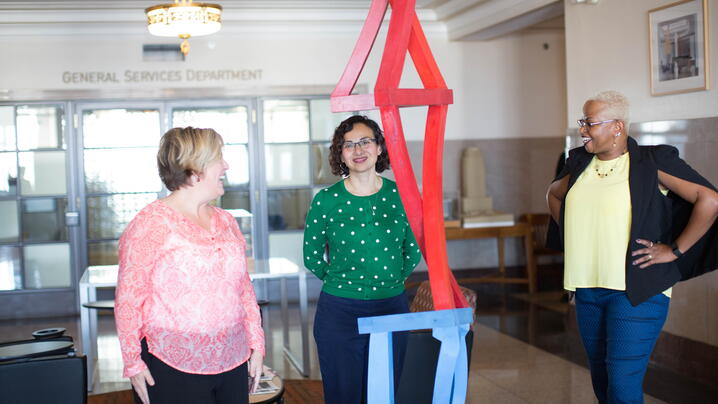
by Leisha DeHart-Davis, Alexander Kroll, and Dominik Vogel
As a public manager, you are familiar with the concept of capital: an asset of value that can appreciate or depreciate, like heavy equipment, buildings, and IT systems.
But another kind of capital is equally valuable, if not more so: the social capital you build with employees.
Social capital is the good will felt by employees toward your organization. It is a resource that enables employees to work well together, to go above and beyond, and to act effectively for the organization even when time and money are scarce.
Research suggests that when organizations build social capital with employees, they improve performance. Our colleague Rhys Andrews at Cardiff University discovered this when studying local governments in England: high social capital reported by employees translated to high scores on a range of independent performance measures.
In our own research just published in the American Review of Public Administration, we find that social capital strengthens employee commitment and engagement. We also find that teams play a critical role in creating a sense of social capital by forming and communicating shared values.
At the Local Government Workplaces Initiative at the University of North Carolina at Chapel Hill, we’ve been working with local governments to help them build social capital with their employees. Social capital has three ingredients: mission, teamwork, and trust. Here is the advice we give local governments for getting there:
1. Create, communicate, and use a compelling mission.
An effective mission focuses employees on the organization’s reason for existing. The mission should be clear and compelling, easy to remember and recite. If it is three paragraphs with lots of different ideas, it is too long.
Once you’ve identified a clear and compelling mission, use it in your decision-making. Talk incessantly about it, reference it in staff meetings, use it to guide decision processes, and lead accordingly. Make sure that formal systems (strategic planning or performance practices) align with the core values articulated in your mission.
2. Enable teamwork in the workforce.
Effective teamwork enables valuable information to flow through the organization. It also makes employees feel part of a greater whole.
One suburban local government in Kansas created an internal campaign around promoting teamwork across employees and departments. The city manager talked teamwork at senior leadership meetings and built effective teamwork into manager and employee performance evaluations. As a result, teamwork became a key component of the city’s culture.
3. Build trust with your employees.
You want employees to trust their supervisors, but also upper management. Data from the Local Government Workplace Initiative suggests that trust is built when upper management communicates the whys behind major decisions and asks employees for input on decisions that affect their workplaces.
Cities and counties can improve their performance by building social capital with employees. Doing so requires a clear and compelling mission, along with effective teamwork and trust between employees and management. The end result will be a higher quality of public services provided to your community.
Leisha DeHart-Davis is a professor at the University of North Carolina at Chapel Hill School of Government; Alexander Kroll is an assistant professor at Florida International University Department of Public Policy and Administration; and Dominik Vogel is an assistant professor at the University of Hamburg Department of Business Administration.
New, Reduced Membership Dues
A new, reduced dues rate is available for CAOs/ACAOs, along with additional discounts for those in smaller communities, has been implemented. Learn more and be sure to join or renew today!
